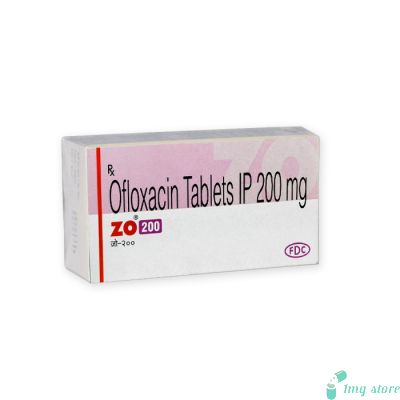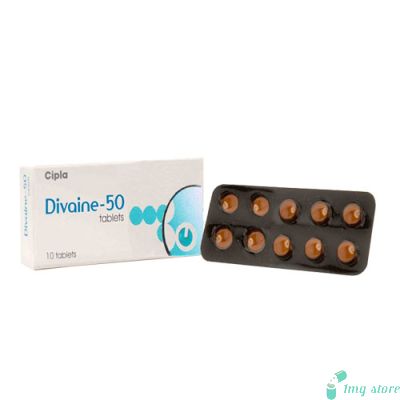Vanlid Injection (Vancomycin)
Buy Vanlid Injection (Vancomycin), Vancomycin is a potent antibiotic medication that is widely used to treat a variety of bacterial infections, particularly those caused by Gram-positive bacteria. Vancomycin is available under several brand names, including Vanlid, Firvanq, and Vancocin.
What is Vancomycin?
Vancomycin is a potent antibiotic medication that is widely used to treat a variety of bacterial infections, particularly those caused by Gram-positive bacteria. It belongs to the glycopeptide class of antibiotics and is typically administered intravenously through an injection. Vancomycin is available under several brand names, including Vanlid, Firvanq, and Vancocin. In this comprehensive guide, we will delve into the various aspects of Vancomycin Injection, including its dosage information, uses, potential side effects, precautions, and interactions with other drugs.
Introduction to Vancomycin Injection
Vancomycin is a crucial Antibiotic in the treatment of serious infections that are resistant to other antibiotics. It was first discovered in the 1950s and became widely used in the 1970s due to its effectiveness against Methicillin-Resistant Staphylococcus Aureus (MRSA) and other Gram-positive bacteria that had developed resistance to other antibiotics. It works by interfering with the synthesis of the bacterial cell wall, leading to cell death. Vancomycin is considered a "last resort" antibiotic, used when other treatment options have failed or when the infection is particularly severe.
Vancomycin Dosage Information
The dosage of Vancomycin Injection can vary depending on factors such as the patient's age, weight, renal function, and the severity of the infection. It's essential to follow the prescribed dosage and administration instructions provided by a healthcare professional or on the medication label. Dosages are typically measured in milligrams (mg) and administered intravenously over a specific period.
For adult patients, the usual dosage range is between 1,000 to 2,000 mg per day, divided into multiple doses. For severe infections, higher doses may be necessary. In pediatric patients, the dosage is generally based on their weight. Individuals with impaired renal function may require adjusted dosages to prevent potential toxic effects.
How to Administer Vancomycin Injection:
Vancomycin Injection is typically administered intravenously by a healthcare professional. The injection site should be clean and sterile. The dosage and infusion rate will be determined by the treating physician based on the patient's condition. It's important to follow their instructions carefully to ensure the effectiveness of the treatment and minimize the risk of potential side effects.
Vancomycin Injection for MRSA:
Vancomycin is a key antibiotic for treating infections caused by Methicillin-Resistant Staphylococcus Aureus (MRSA), a bacteria strain resistant to many other antibiotics. It is often used as a treatment of last resort when other options fail. Due to its potency against MRSA, Vancomycin remains a crucial tool in combating serious Bacterial Infections.
Buy Vancomycin Injection Online:
Our website, 1mgstore.com, offers the convenience of purchasing Vancomycin Injections online. However, it's essential to exercise caution and ensure that you are obtaining medications from a reputable and licensed source. Always consult with a healthcare professional before making any medication purchases online to ensure safety, authenticity, and appropriate usage.
Before starting Vanlid Injection (Vancomycin) treatment, it's important to consider certain precautions:
- Allergies: Inform your healthcare provider about any allergies you have, especially if you're allergic to Vancomycin/Vancocin or other antibiotics.
- Kidney Function: Individuals with impaired kidney function may require adjusted dosages to avoid kidney damage.
- Hearing Problems: If you have a history of hearing problems, make sure to discuss this with your doctor before taking Vancomycin.
- Pregnancy and Breastfeeding: Consult your healthcare provider if you're pregnant, planning to become pregnant, or breastfeeding, as Vancomycin's safety during these times needs to be evaluated.
- Underlying Conditions: Inform your healthcare provider about any other medical conditions you have, as certain conditions may affect the appropriateness of Vancomycin treatment.
Vancomycin Injection/Vancocin is primarily used to treat bacterial infections caused by susceptible Gram-positive bacteria.
- Methicillin-Resistant Staphylococcus Aureus (MRSA) Infections: Vancomycin is a crucial treatment option for infections caused by MRSA, a bacteria strain resistant to many other antibiotics.
- Endocarditis: It is used to treat infections of the heart valves (endocarditis) caused by susceptible bacteria.
- Bone and Joint Infections: Vancomycin can be used in the treatment of bone and joint infections caused by Gram-positive bacteria.
- Pneumonia: It can be considered in cases of severe pneumonia caused by resistant organisms.
- Bacteremia: Vancomycin is often used to treat bloodstream infections caused by susceptible bacteria.
- Skin and Soft Tissue Infections: It can be used for severe skin and soft tissue infections caused by susceptible bacteria.
Crucial Side Effects to Be Observed When Using Vanlid Injection (Vancomycin)
While Vancomycin is effective in treating infections, like all medications, it can cause side effects. Common side effects include:
- Nephrotoxicity: Vancomycin can sometimes cause kidney damage, especially when high doses are used or when the drug is administered rapidly.
- Ototoxicity: It can lead to hearing loss or balance problems, particularly with prolonged or high-dose usage.
- Red Man Syndrome: Rapid infusion of Vancomycin can cause a reaction called Red Man Syndrome, characterized by flushing, itching, and rash on the upper body.
- Thrombophlebitis: Injection site reactions like inflammation of the veins can occur.
- Allergic Reactions: Although rare, allergic reactions such as rash, itching, or swelling may occur.
- Blood Disorders: In some cases, Vancomycin can lead to changes in blood cell counts.
Frequently Asked Queries About Vancomycin Injection
What is the recommended dosage for Vancomycin Injection in children?
The dosage for pediatric patients is generally based on their weight. A healthcare professional will determine the appropriate dose to ensure effective treatment while considering the child's size and potential renal function.
Can Vancomycin Injection be used for viral infections like the flu?
No, Vancomycin is an antibiotic specifically effective against bacterial infections. It does not work against viruses such as the flu. It's essential to use antibiotics only when prescribed for bacterial infections to prevent antibiotic resistance.
Is it safe to use Vancomycin Injection during pregnancy?
Pregnant individuals should consult their healthcare provider before using Vancomycin. While Vancomycin is generally considered safe during pregnancy, medical guidance is important to assess potential benefits and risks for both the mother and the baby.
Are there any dietary restrictions while using Vancomycin Injection?
There are no specific dietary restrictions associated with Vancomycin. However, maintaining a healthy diet and staying hydrated can support your overall recovery during the course of treatment.
Can Vancomycin Injection be administered at home?
In some cases, healthcare providers may prescribe a home infusion of Vancomycin, especially for patients who require long-term treatment. Home administration is usually supervised by a healthcare professional to ensure proper dosing and safety.
Some notable interactions with Vanlid Injection (Vancomycin) include:
Vancomycin can interact with other medications, potentially affecting their effectiveness or causing harmful side effects.
- Aminoglycosides: Combining Vancomycin with other antibiotics like aminoglycosides (e.g., Gentamicin) can increase the risk of kidney damage and hearing loss.
- Nephrotoxic Drugs: Drugs that can damage the kidneys should be used cautiously with Vancomycin to avoid additional kidney stress.
- Neuromuscular Blockers: Interaction with neuromuscular blockers can lead to increased muscle weakness or respiratory depression.
- Warfarin: Vancomycin might affect the metabolism of Warfarin, an anticoagulant, potentially leading to bleeding or clotting issues.
- Cyclosporine: Combining Vancomycin with Cyclosporine can increase the risk of nephrotoxicity.
- Other Antibiotics: The concurrent use of certain antibiotics can affect Vancomycin's effectiveness or increase the risk of adverse effects.
| Manufacturer | : | Cipla Pharma, India |
| Equivalent Brand | : | Vancocin |
| Generic Search | : | Vancomycin |













